Managing Your Money and Exchanging Currency in Budapest
Budapest has amazing architecture, thermal baths, and tons of cultural stuff to see. But first, you'll need to figure out the money situation. Hungary uses the Hungarian Forint (HUF), and if you know how to exchange money properly, you'll save a lot more for the fun stuff instead of throwing it away on fees.
Understanding Hungarian Currency
Hungary has used the Hungarian Forint (HUF) since 1946. The name comes from Florence, where they used to make gold coins. Some tourist places take Euros, but they'll rip you off with terrible exchange rates. You're much better off using Hungarian Forints.
Hungarian money comes in coins and bills:
Coins: 5, 10, 20, 50, 100, and 200 HUF Bills: 500, 1000, 2000, 5000, 10000, and 20000 HUF
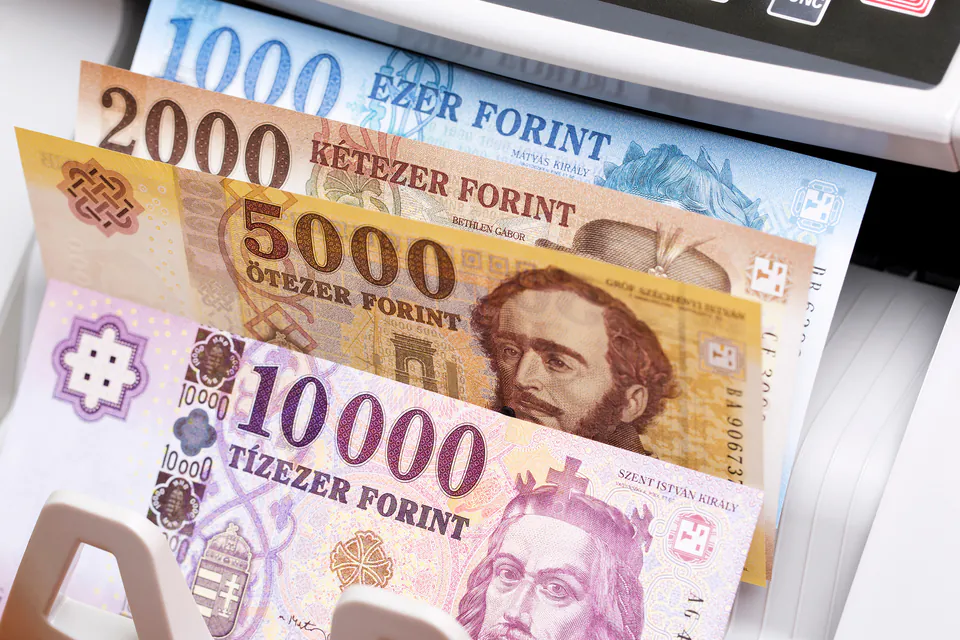
We always keep some cash around for tipping, using public toilets, and small places that like cash better than cards.
Best Places to Exchange Money
Where you exchange money makes a huge difference in Budapest. There are tons of places to do it, but the rates and fees change a lot depending on where you go.
Currency Exchange Offices
You'll get the best exchange rates at currency exchange offices in the city center. We recommend looking along Tram Line 4-6 on the Pest side. This includes four connected streets: József körút, Erzsébet körút, Teréz körút, and Széchenyi István körút. Shopping malls also have good exchange offices.
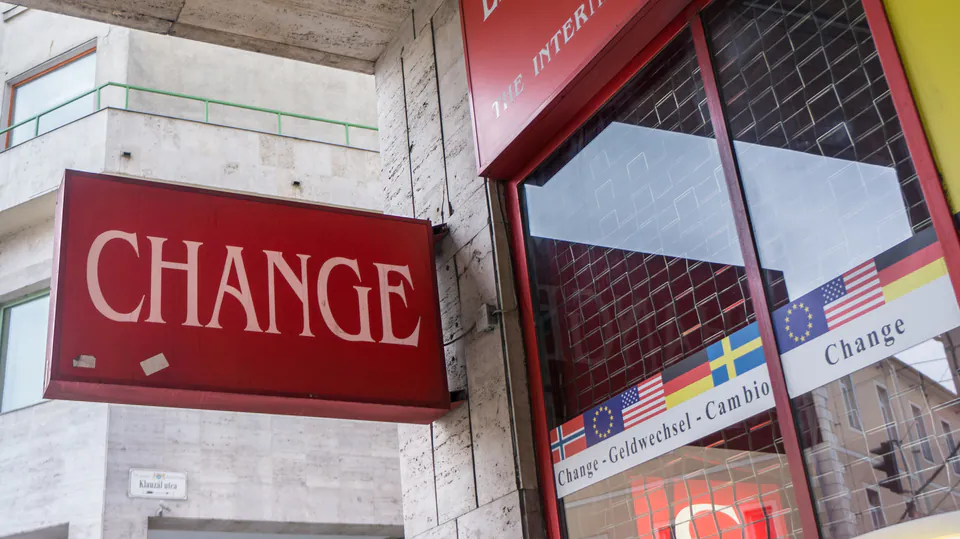
Here are some exchange offices that get really good Google reviews:
Top-Rated Currency Exchange Offices in Budapest
| Exchange Office | Address | Google Rating |
|---|---|---|
| Change 32 | Budapest, Harminckettesek tere 2 | 4.8/5 stars |
| Arany Change | Budapest, Erzsébet krt. 5 | 4.7/5 stars |
| Expert Change | Budapest, Teréz krt. 21 | 4.7/5 stars |
| Omika Currency Exchange | Budapest, Bartók Béla út 16 | 4.7/5 stars |
| Correct Change - China Mart | Budapest, Szentmihályi út 171 | 4.7/5 stars |
| Money Exchange | Budapest, Király u. 1/b | 4.5/5 stars |
| Korona Change | Budapest, Teréz krt. 35 | 4.4/5 stars |
Places to Avoid for Currency Exchange
Not every place that exchanges money is fair. To keep more money in your pocket, stay away from these:
Airport Exchange Offices - Super convenient, but the rates are terrible. Only exchange what you absolutely need for getting to the city.
Hotels - Most hotels will exchange money, but their rates are pretty bad compared to real exchange offices.
Banks - This might surprise you, but banks usually have worse rates for tourists than the exchange offices in the city.
Tourist Areas - Exchange offices in touristy spots, especially on Váci Street (the main shopping street), have worse rates. Same goes for places that stay open really late.
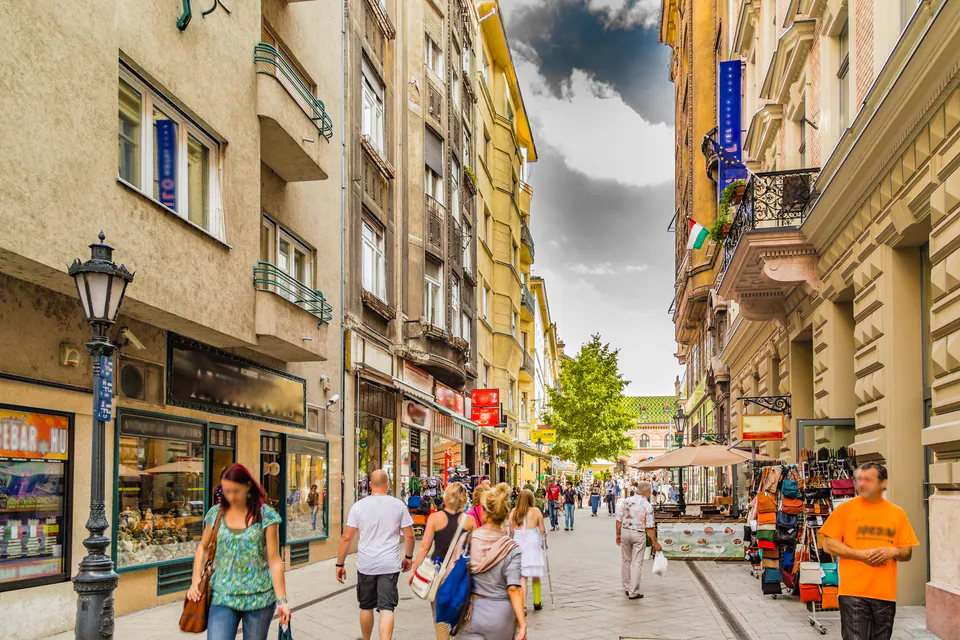
Smart Money Exchange Tips
We've learned some tricks over the years to get better value when exchanging money in Budapest:
Watch Out for "No Commission" Signs
When you see "No commission" signs, be careful. These places usually hide their fees by giving you worse exchange rates. We prefer places that are upfront about what they charge.
Know the Real Exchange Rate
Before exchanging money, check the actual rate online with XE.com or Google. This way you can tell which places are being fair and which ones are trying to rip you off.
Ask Questions
Don't be shy about asking what the exchange rate is, how they calculate commission, and always get a receipt. Being informed is your best protection.
Check Ratings First
We always look for exchange offices with Google ratings above 4.0, but 4.5+ is even better. A quick search can save you from a bad experience.

Using ATMs in Budapest
ATMs are pretty convenient compared to exchange offices, but there are some things you should know.
Bank ATMs vs. Independent Networks
Look for ATMs from real Hungarian banks like OTP, Raiffeisen, Magnet Bank, UniCredit, and Erste. These are much better than independent ones like Euronet, which charge you extra fees.
How to Withdraw Money
When you're getting cash from an ATM, always choose Hungarian Forints. Don't let the ATM convert to your home currency. We learned this the hard way once - your own bank's exchange rate is way better than what the ATM will give you.
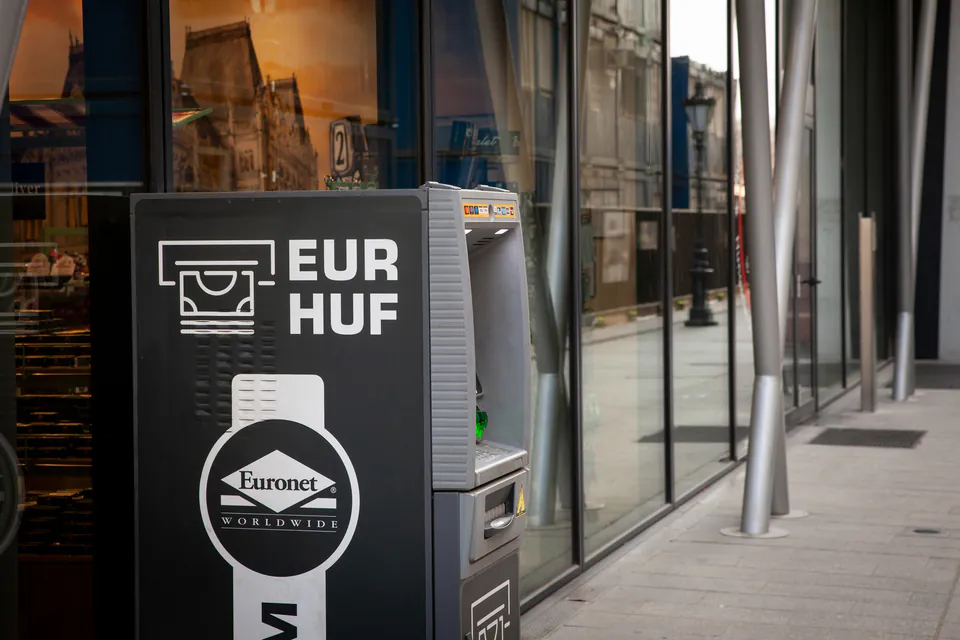
Digital Payment Options
Hungary has gotten much better with digital payments in recent years, so it's pretty easy to pay with cards now.
Card Payments
Most places in Budapest take cards now. Hungarian law actually requires businesses to accept digital payments. When paying by card, always choose to pay in Hungarian Forints when they ask, not your home currency. Trust us on this one.
Multi-Currency Cards
We really recommend services like Wise (used to be called TransferWise) and Revolut for traveling to Budapest. These give you much better exchange rates than regular banks, you can hold different currencies, and it's easy to withdraw cash from ATMs.
Mobile Payments
Paying with your phone is becoming really common in Budapest, especially in the city center and tourist areas.
Costs of Currency Exchange
Here's what you can expect to pay:
- Exchanging money usually costs between 100 HUF to 1500 HUF (about 0.25-4 EUR)
- Hungarian law says the minimum commission is 0.3%
- For big amounts, the maximum charge is usually around 7800-10000 HUF (20-25 EUR)
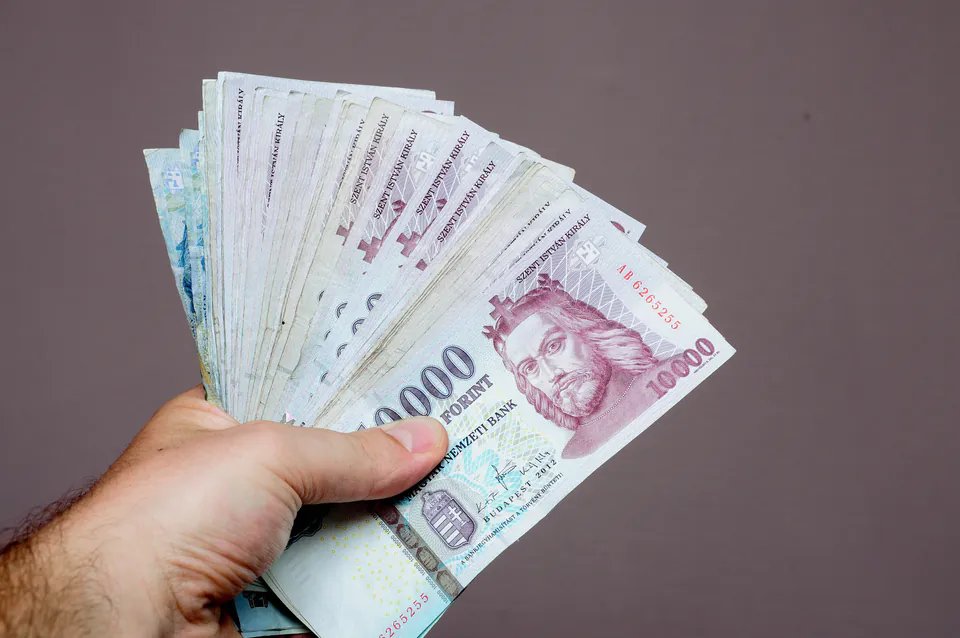
Banking Options for Visitors
If you're staying for a while, Hungary has some good banking options for foreigners.
Non-Resident Bank Accounts
Hungary lets foreign nationals open non-residential accounts. You just need a valid passport. You can open accounts in Hungarian Forints or other currencies.
Practical Money Management
Here are some practical tips we've picked up for handling money in Budapest:
Cash Needs: For a short trip, just have enough cash for small purchases, getting around, and emergencies. Cards work for bigger expenses.
Pre-Trip Exchange: It's usually cheaper to exchange money in Budapest than in your home country. You'll get better rates at local exchange offices.
Cash vs. Card Balance: Cards work almost everywhere, but keep some cash for smaller places, markets, tips, and places that might have minimum amounts for card purchases.
